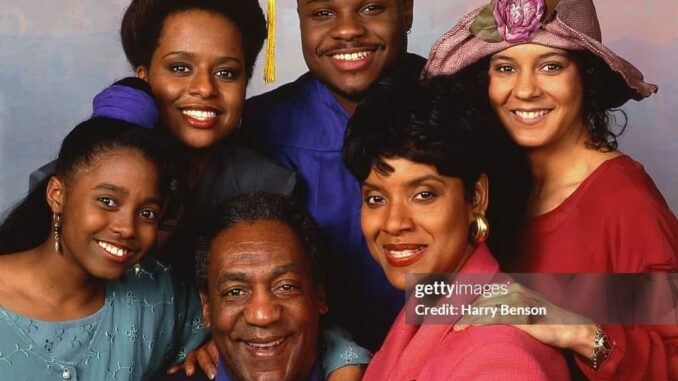
1. The Impact of Bill Cosby’s Crimes
Bill Cosby was convicted in 2018 of aggravated indecent assault against Andrea Constand, and numerous other women have accused him of sexual assault over the years. These allegations span several decades, and the accusations and subsequent conviction have severely damaged Cosby’s public image and his legacy. Cosby’s actions have led to widespread reevaluation of his body of work, including The Cosby Show.
For some viewers, the fact that the show was created and largely shaped by Cosby, and that he continues to profit from its airing in syndication, makes it difficult to separate the show from his criminal behavior. For others, The Cosby Show is seen as an important cultural landmark that should be evaluated independently of Cosby’s personal crimes, especially given its groundbreaking role in changing the portrayal of African-American families on television.
2. The Cultural and Historical Importance of The Cosby Show
The Cosby Show was, and remains, one of the most influential sitcoms in TV history. It presented a positive, multi-dimensional portrayal of a Black family at a time when Black families were often stereotyped or marginalized in mainstream media. It also broke new ground by depicting a successful, educated African-American family, which had a profound impact on representation in Hollywood.
For many, The Cosby Show still holds cultural significance because of its role in shaping how African-American families are portrayed on television. It was a source of pride for many viewers who saw themselves reflected in the Huxtables—an aspirational model of Black success and family life.
3. The Ethical Dilemma: Can You Separate the Art from the Artist?
The larger ethical dilemma here is whether we can (or should) separate an artist’s personal behavior from the work they create. This question has been debated in the context of many famous figures whose personal lives have been called into question, including artists, actors, musicians, and writers.
In the case of The Cosby Show, some viewers argue that enjoying or continuing to watch the show is no longer acceptable because of Cosby’s crimes. They feel that to support the show now means endorsing or ignoring his actions, which are seen as indefensible.
On the other hand, some viewers may choose to watch the show as a way of appreciating the broader cultural significance of the work itself, without excusing Cosby’s actions. This perspective acknowledges the harm Cosby caused but also recognizes that the show itself provided value in terms of representation, comedy, and the portrayal of Black families, independent of the artist’s actions.
4. The Financial Aspect
It’s important to note that Bill Cosby still profits from the show’s syndication, which may be a factor in the decision of whether or not to watch. Cosby’s income from the show is likely part of the reason why some people feel uncomfortable supporting it. In this sense, continuing to watch The Cosby Show could be seen as indirectly supporting Cosby financially, which may be a point of ethical concern for some viewers.
However, others may feel that the actors, writers, and producers who worked on the show, many of whom are not responsible for Cosby’s actions, also deserve recognition for their contributions to the show’s success. This is a complex issue, and it’s part of why the question of whether to watch the show is not clear-cut.
5. What Do Other People Think?
Many people have wrestled with this dilemma, and there is no unanimous answer. Some people have stopped watching The Cosby Show entirely, feeling that they cannot enjoy the show in good conscience given Cosby’s crimes. Others continue to watch the show but may feel conflicted about it, knowing what Cosby has done. Still, others have decided that the show’s historical importance and positive portrayal of Black families outweighs the personal failings of Cosby, even if they acknowledge his criminal actions.
For some, it’s a matter of “canceling” the show because of the way Cosby’s actions have tainted it, while for others, the show still stands as a symbol of positive representation, independent of its creator’s personal behavior.
6. Alternatives and Moving Forward
If you are looking to continue watching sitcoms that focus on Black families and offer a similar type of family-centered programming without the ethical baggage associated with Cosby, there are many other options that can still offer entertainment and cultural value, such as:
- A Different World – The spin-off from The Cosby Show that starred Lisa Bonet and focused on life at a historically Black college.
- Black-ish – A modern sitcom that explores race, identity, and family dynamics in contemporary America.
- The Fresh Prince of Bel-Air – Another groundbreaking sitcom that showcased a successful Black family and has become a cultural staple.
- The Jeffersons – A classic sitcom that also dealt with race, class, and the Black experience in America.
These shows, while different in style and tone, continue the tradition of exploring Black family life and can be enjoyed without the moral conflict that comes with watching The Cosby Show today.
Ultimately, whether or not it’s “okay” to watch The Cosby Show is a personal decision, and it depends on how you reconcile its cultural importance with the knowledge of Bill Cosby’s criminal actions. Some people might feel comfortable watching it for its historical significance and the talented work of its cast and crew, while others may find it impossible to separate the artist from the art. Either way, it’s important to consider the ethical implications and to make a decision that aligns with your own values and understanding of the broader cultural context.